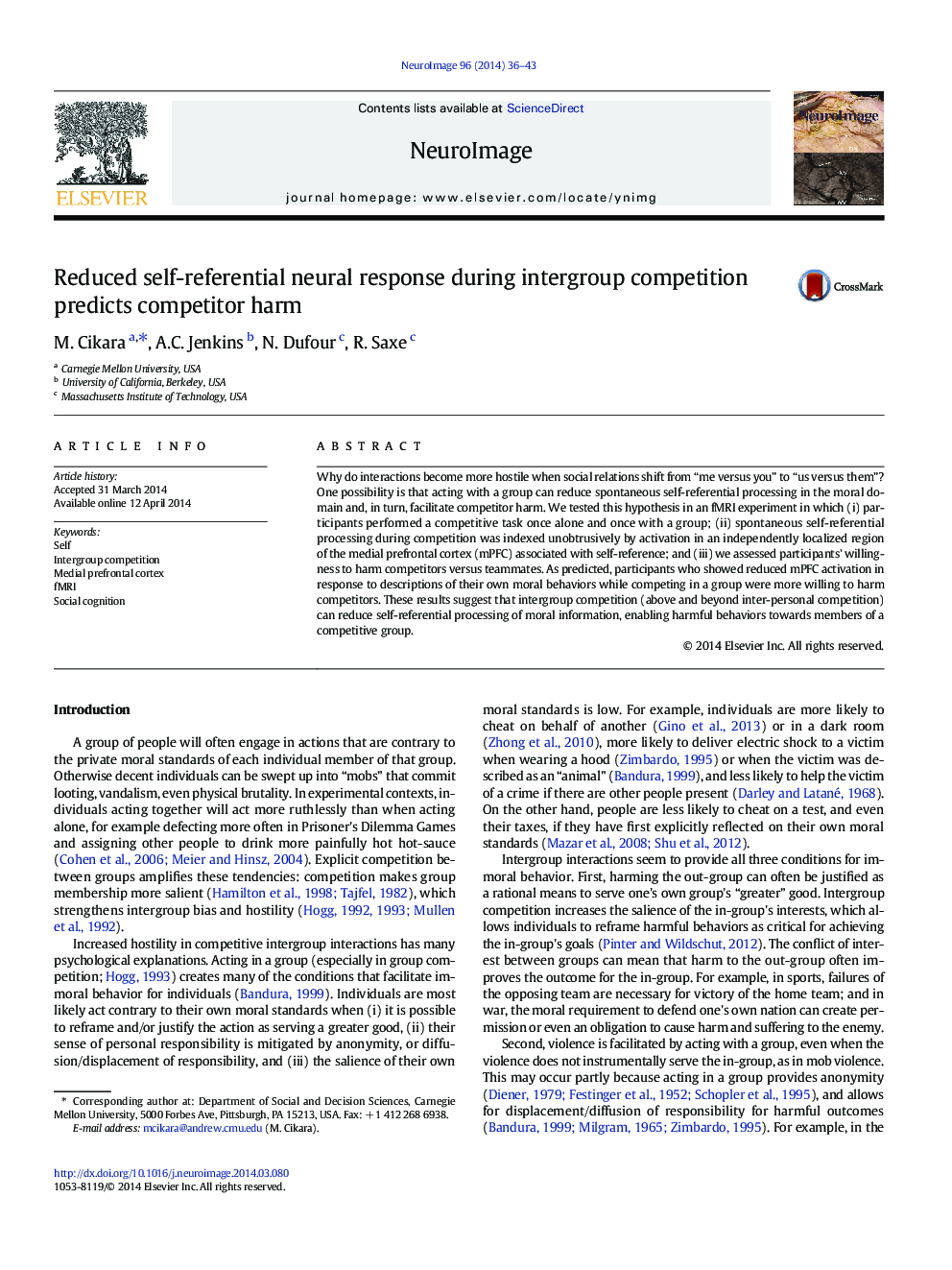| Article ID | Journal | Published Year | Pages | File Type |
|---|---|---|---|---|
| 6027178 | NeuroImage | 2014 | 8 Pages |
Abstract
Why do interactions become more hostile when social relations shift from “me versus you” to “us versus them”? One possibility is that acting with a group can reduce spontaneous self-referential processing in the moral domain and, in turn, facilitate competitor harm. We tested this hypothesis in an fMRI experiment in which (i) participants performed a competitive task once alone and once with a group; (ii) spontaneous self-referential processing during competition was indexed unobtrusively by activation in an independently localized region of the medial prefrontal cortex (mPFC) associated with self-reference; and (iii) we assessed participants' willingness to harm competitors versus teammates. As predicted, participants who showed reduced mPFC activation in response to descriptions of their own moral behaviors while competing in a group were more willing to harm competitors. These results suggest that intergroup competition (above and beyond inter-personal competition) can reduce self-referential processing of moral information, enabling harmful behaviors towards members of a competitive group.
Related Topics
Life Sciences
Neuroscience
Cognitive Neuroscience
Authors
M. Cikara, A.C. Jenkins, N. Dufour, R. Saxe,
